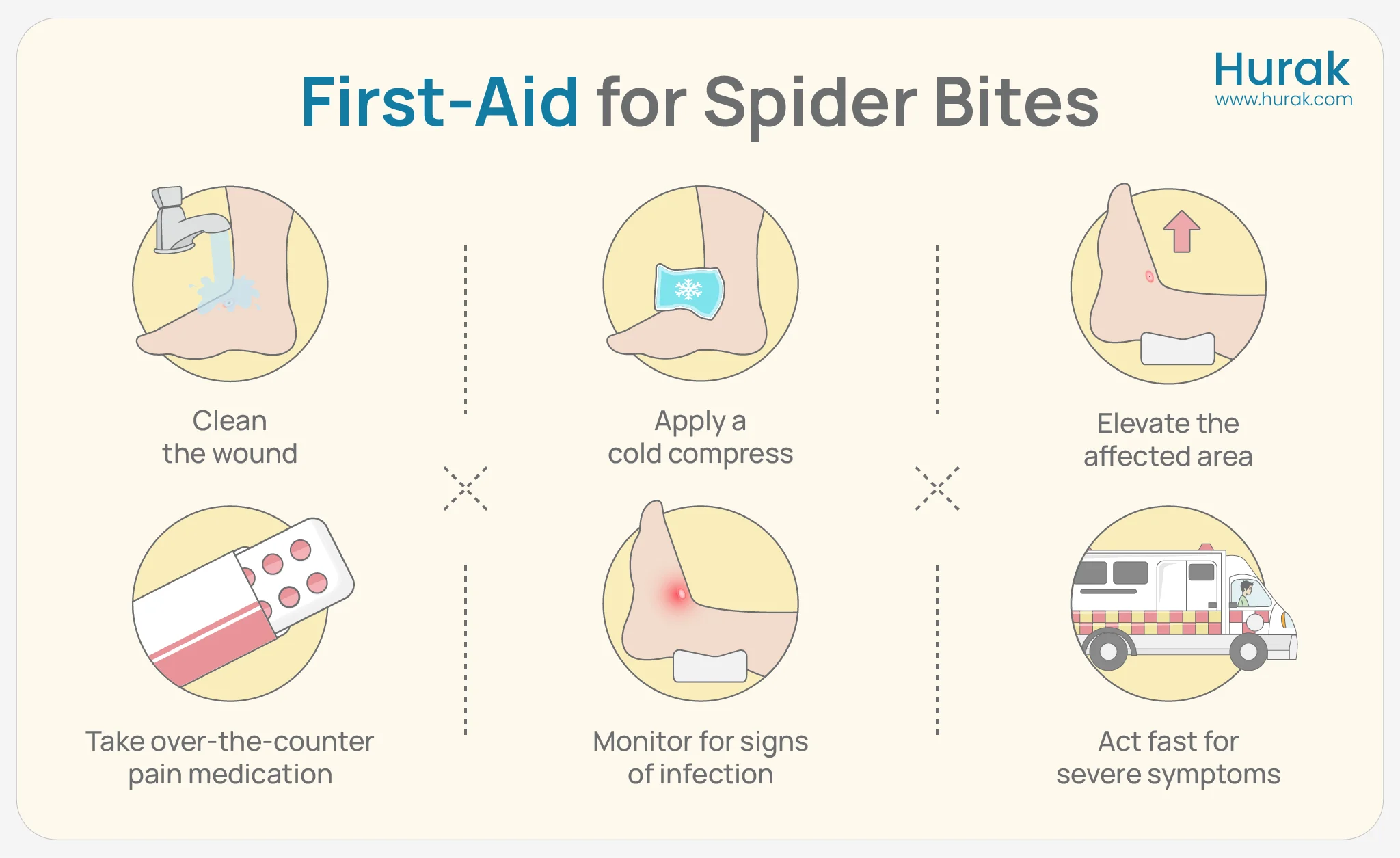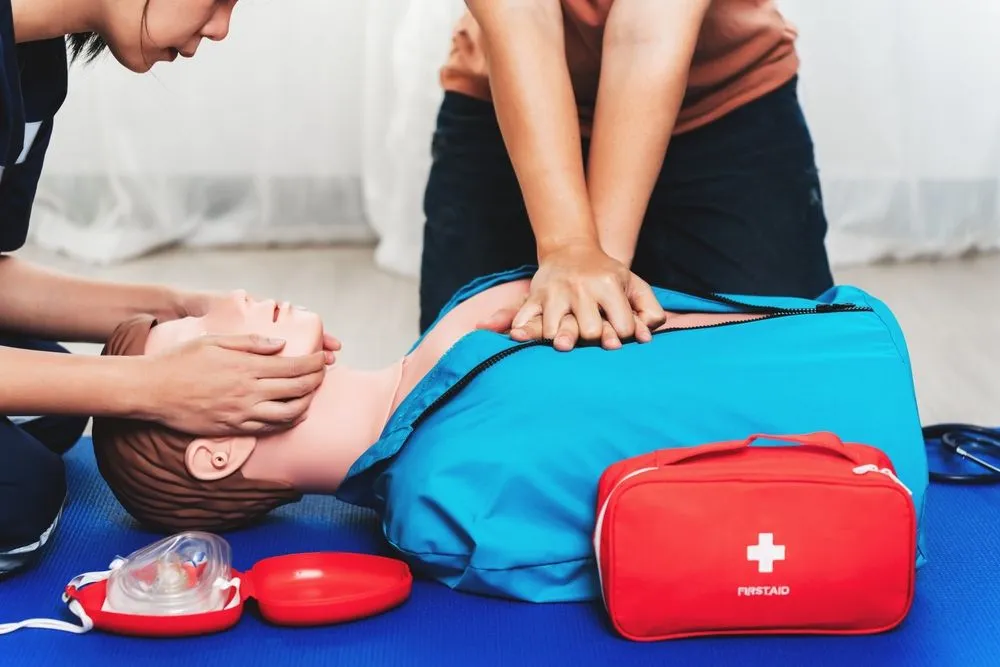Spider Bite First Aid: What to Do When Bitten
Spider bites are common, and while most are harmless, some can cause serious health issues. Knowing how to treat a spider bite properly minimises discomfort and prevents complications. This blog post will guide you through the essential first-aid steps for spider bites.
Identifying a Spider Bite
Spider bites often appear as tiny, red marks on the skin, similar to other insect bites. However, some spider bites may have distinct characteristics, depending on the nature of the venom. These distinct characteristics can present themselves as:
- Pain: The bite area may be painful, ranging from mild to severe.
- Swelling: The bite site may swell and become inflamed.
- Redness: The skin around the bite soon turns reddish.
- Itching: The area might feel itchy.
- Blistering: While some spider bites (like a brown recluse) can cause blisters or necrotic tissue, not all do.
- Muscle cramps or spasms: In extreme cases a person may suffer from muscle spasms.
- Nausea and vomiting: Another example of a severe case is that a person may feel nauseated after being bitten by a spider.
- Fever: some people might end up with a fever followed by a spider bite.
First Aid for Spider Bites

If you suspect you’ve been bitten by a spider, follow these first-aid steps:
- Clean the wound: Wash the bite area with mild soap and water to prevent infection.
- Apply a cold compress: Apply a cold compress or ice pack to the bite for 15 minutes at a time, several times a day, to reduce swelling and pain.
- Elevate the affected area: If possible, elevate the bitten limb to help reduce swelling.
- Take over-the-counter pain medication: If you’re experiencing pain, take an over-the-counter pain reliever like acetaminophen or ibuprofen.
- Monitor for signs of infection: Watch for signs of infection, such as increased redness, swelling, pain, or pus. If you notice any of these signs, seek medical attention immediately.
- If the signs worsen- seek immediate help, if the person is having difficulty breathing or has chest pain then it is imperative that you take immediate action.

Want to learn more about spider bites and how to treat them? Our First Aid courses offer complete training to help you handle critical situations. Whether you want to improve your skills or workplace safety, these courses help build confidence and expertise. View our Emergency First Aid at Work (EFAW) and Level 3 First Aid at Work courses. These courses meet the UK legal requirements and help you keep people safe.
When to Seek Medical Attention
While most spider bites can be treated at home, it’s essential to seek medical attention if you experience any of the following:
- Severe pain: If the pain is intense or worsening, seek medical help immediately.
- Muscle cramps or spasms: Muscle cramps or spasms can indicate a severe reaction to the venom and require medical treatment.
- Difficulty breathing: If you experience difficulty breathing, wheezing, or chest tightness, seek emergency medical attention immediately.
- Nausea and vomiting: Persistent nausea and vomiting can also indicate a severe reaction and require medical treatment.
- Signs of infection: If the bite shows signs of infection, such as increased redness, swelling, pain, or pus, seek medical attention promptly.
- Bite from a known dangerous spider: If you know you were bitten by a potentially dangerous spider, such as a black widow or brown recluse, seek medical attention immediately, even if you don’t have any symptoms.
Preventing Spider Bites
While it’s impossible to prevent all spider bites, you can take steps to reduce your risk:
- Wear protective clothing: When working in areas where spiders may be present, wear long sleeves, pants, and gloves.
- Inspect clothing and gear: Shake out clothing, shoes, and gear before wearing or using them, especially if they’ve been stored in a garage or shed.
- Be cautious in dark or undisturbed areas: Spiders often prefer dark, secluded spaces. Be cautious when working in such areas, like attics, basements, and crawl spaces.
- Keep your home clean: Regularly clean and declutter your home to reduce spider habitats.
- Seal cracks and openings: Seal cracks and openings in your home’s foundation and walls to prevent spiders from entering.
Conclusion
Spider bites are common, but most turn out to be harmless and can be treated at home with basic first aid. However, knowing when to seek medical attention is imperative, as some spider venomous spiders can cause severe reactions. By carefully following the tips in this article, you can be prepared to handle any spider bites effectively and prevent or reduce any potential complications.




